Arts & Entertainment
LGBT history lessons far from universal in U.S. public schools
Religious exemption wavers, anti-LGBT curriculum publishers wrinkle progress

This fall more public school students could see LGBT content as states move toward mandating a more inclusive K-12 curriculum. However, publicly funded private schools continue to seek religious exemptions to anti-discriminatory measures.
In 2011 California passed its Fair, Accurate, Inclusive and Respectful (FAIR) Education Act, and lawmakers in New Jersey, Illinois, Colorado and New York City have moved to follow suit.
California’s FAIR Education Act mandates the inclusion of the political, economic and social contributions of LGBT people and persons with disabilities into educational textbooks across the state. It amends an existing educational code previously mandating inclusions based on race, ethnicity, nationality and gender.
Sen. Mark Leno, the state’s first openly gay state senator, sponsored the bill, stating the goal was to ensure the contributions of LGBT historical figures were “accurately and fairly portrayed in instructional materials.”
Similarly, Colorado State Representative Brianna Buentello, who co-sponsored their bill, said, “Our intent was to start teaching the history of everybody.”
In New York, the city council approved a 2019 budget that included $600,000 for LGBT-inclusive educational programming. Included are lessons about pioneers such as Harvey Milk, Bayard Rustin, Marsha P. Johnson, Sylvia Rivera and others. Also included are opportunities to meet current history makers and view an interactive map of LGBT historic sites through the city.
Proponents state the inclusive measures were necessary to protect both LGBT students and faculty from bullying and other forms of discrimination.
Illinois State Rep. Jennifer Gong-Gershowitz (D-Glenview) said if their bill had been law 15 years ago, her brother would not have been harassed and denied tenure in a suburban Chicago school.
“My brother was teaching history,” Gong-Gershowitz said at the time. “And a student asked whether the historical figure, that was the subject of the lesson, was gay. He answered the truth.”
As a result, her brother was subject to hate mail and called into the principal’s office.
New Jersey also passed a law mandating LGBT-inclusive curriculum for middle and high school students. However, the mandate does not apply to private schools.
Len Deo, president of the New Jersey Family Council, said these measures infringed on parents’ choices regarding teaching sexuality to their children, echoing concerns of conservative groups across the country.
Lauri Higgins of the Illinois Family Institute similarly said at a hearing on the matter, “The left’s motive is what it always is … to normalize homosexuality,” The Hill reports.
This concern about parental choice in education is at the heart of the school voucher movement championed by Secretary of Education Betsy DeVos. However, the program has its roots in a resistance to school integration efforts in the 1950s and 1960s.
According to the Center for American Progress, a progressive-leaning policy institute, in response to federal desegregation orders following the Brown v. Board of Education decision, Prince Edward County, Virginia issued tuition grant vouchers for white students to attend segregated private schools. Then as now, these schools rely on significant levels of public funding to continue to operate.
While Title IX of the federal Education Amendment prohibits discrimination on the basis of sex in educational programs receiving federal funds, the Obama administration’s inclusion of gender identity and sexual orientation in this definition remains controversial.
Still, some schools continue to submit religious exemption waivers to perceived Title IX mandates, permitting them to discriminate against out LGBT students or faculty with impunity.
Additionally, an investigation by Huffington Post found thousands of these schools use discriminatory evangelical Christian curriculum often purchased using public funds.
As of 2017, 30 percent or more of the Christian (non-Catholic) schools participating in private school choice programs in Virginia and Maryland, and up to 10 percent in D.C., used textbooks from ultra-conservative publishers such as Bob Jones University Press.
Bob Jones University, submitted a Title IX religious exemption request in 2017 for permission to discriminate against LGBT students and faculty despite receiving public funds.
Students who attended programs using these discriminatory texts reported feeling ill-equipped to succeed in a diverse society and felt instilled with racist, sexist and intolerant views of the world.
Capri Coleman, an educator in the D.C. area, says it’s important to take students’ feelings into account just as much as parental “choice” when considering curriculum.
“Parents are always going to have a choice in what they want their children to be exposed to,” she says. “But at the same time, children will always run into people who are not like them.”
This is why she felt it was important for parents and society to first “teach tolerance and understanding.”
Unfortunately, due to voucher programs and religious exemptions, the tolerance and understanding promised by LGBT-curriculum legislation is not reaching all students receiving publicly funded education.
Movies
‘Hedda’ brings queer visibility to Golden Globes
Tessa Thompson up for Best Actress for new take on Ibsen classic

The 83rd annual Golden Globes awards are set for Sunday (CBS, 8 p.m. EST). One of the many bright spots this awards season is “Hedda,” a unique LGBTQ version of the classic Henrik Ibsen story, “Hedda Gabler,” starring powerhouses Nina Hoss, Tessa Thompson and Imogen Poots. A modern reinterpretation of a timeless story, the film and its cast have already received several nominations this awards season, including a Globes nod for Best Actress for Thompson.
Writer/director Nia DaCosta was fascinated by Ibsen’s play and the enigmatic character of the deeply complex Hedda, who in the original, is stuck in a marriage she doesn’t want, and still is drawn to her former lover, Eilert.
But in DaCosta’s adaptation, there’s a fundamental difference: Eilert is being played by Hoss, and is now named Eileen.
“That name change adds this element of queerness to the story as well,” said DaCosta at a recent Golden Globes press event. “And although some people read the original play as Hedda being queer, which I find interesting, which I didn’t necessarily…it was a side effect in my movie that everyone was queer once I changed Eilert to a woman.”
She added: “But it still, for me, stayed true to the original because I was staying true to all the themes and the feelings and the sort of muckiness that I love so much about the original work.”
Thompson, who is bisexual, enjoyed playing this new version of Hedda, noting that the queer love storyline gave the film “a whole lot of knockoff effects.”
“But I think more than that, I think fundamentally something that it does is give Hedda a real foil. Another woman who’s in the world who’s making very different choices. And I think this is a film that wants to explore that piece more than Ibsen’s.”
DaCosta making it a queer story “made that kind of jump off the page and get under my skin in a way that felt really immediate,” Thompson acknowledged.
“It wants to explore sort of pathways to personhood and gaining sort of agency over one’s life. In the original piece, you have Hedda saying, ‘for once, I want to be in control of a man’s destiny,’” said Thompson.
“And I think in our piece, you see a woman struggling with trying to be in control of her own. And I thought that sort of mind, what is in the original material, but made it just, for me, make sense as a modern woman now.”
It is because of Hedda’s jealousy and envy of Eileen and her new girlfriend (Poots) that we see the character make impulsive moves.
“I think to a modern sensibility, the idea of a woman being quite jealous of another woman and acting out on that is really something that there’s not a lot of patience or grace for that in the world that we live in now,” said Thompson.
“Which I appreciate. But I do think there is something really generative. What I discovered with playing Hedda is, if it’s not left unchecked, there’s something very generative about feelings like envy and jealousy, because they point us in the direction of self. They help us understand the kind of lives that we want to live.”
Hoss actually played Hedda on stage in Berlin for several years previously.
“When I read the script, I was so surprised and mesmerized by what this decision did that there’s an Eileen instead of an Ejlert Lovborg,” said Hoss. “I was so drawn to this woman immediately.”
The deep love that is still there between Hedda and Eileen was immediately evident, as soon as the characters meet onscreen.
“If she is able to have this emotion with Eileen’s eyes, I think she isn’t yet because she doesn’t want to be vulnerable,” said Hoss. “So she doesn’t allow herself to feel that because then she could get hurt. And that’s something Eileen never got through to. So that’s the deep sadness within Eileen that she couldn’t make her feel the love, but at least these two when they meet, you feel like, ‘Oh my God, it’s not yet done with those two.’’’
Onscreen and offscreen, Thompson and Hoss loved working with each other.
“She did such great, strong choices…I looked at her transforming, which was somewhat mesmerizing, and she was really dangerous,” Hoss enthused. “It’s like when she was Hedda, I was a little bit like, but on the other hand, of course, fascinated. And that’s the thing that these humans have that are slightly dangerous. They’re also very fascinating.”
Hoss said that’s what drew Eileen to Hedda.
“I think both women want to change each other, but actually how they are is what attracts them to each other. And they’re very complimentary in that sense. So they would make up a great couple, I would believe. But the way they are right now, they’re just not good for each other. So in a way, that’s what we were talking about. I think we thought, ‘well, the background story must have been something like a chaotic, wonderful, just exploring for the first time, being in love, being out of society, doing something slightly dangerous, hidden, and then not so hidden because they would enter the Bohemian world where it was kind of okay to be queer and to celebrate yourself and to explore it.’”
But up to a certain point, because Eileen started working and was really after, ‘This is what I want to do. I want to publish, I want to become someone in the academic world,’” noted Hoss.
Poots has had her hands full playing Eileen’s love interest as she also starred in the complicated drama, “The Chronology of Water” (based on the memoir by Lydia Yuknavitch and directed by queer actress Kristen Stewart).
“Because the character in ‘Hedda’ is the only person in that triptych of women who’s acting on her impulses, despite the fact she’s incredibly, seemingly fragile, she’s the only one who has the ability to move through cowardice,” Poots acknowledged. “And that’s an interesting thing.”
Arts & Entertainment
2026 Most Eligible LGBTQ Singles nominations
We are looking for the most eligible LGBTQ singles in the Washington, D.C. region.

Are you or a friend looking to find a little love in 2026? We are looking for the most eligible LGBTQ singles in the Washington, D.C. region. Nominate you or your friends until January 23rd using the form below or by clicking HERE.
Our most eligible singles will be announced online in February. View our 2025 singles HERE.
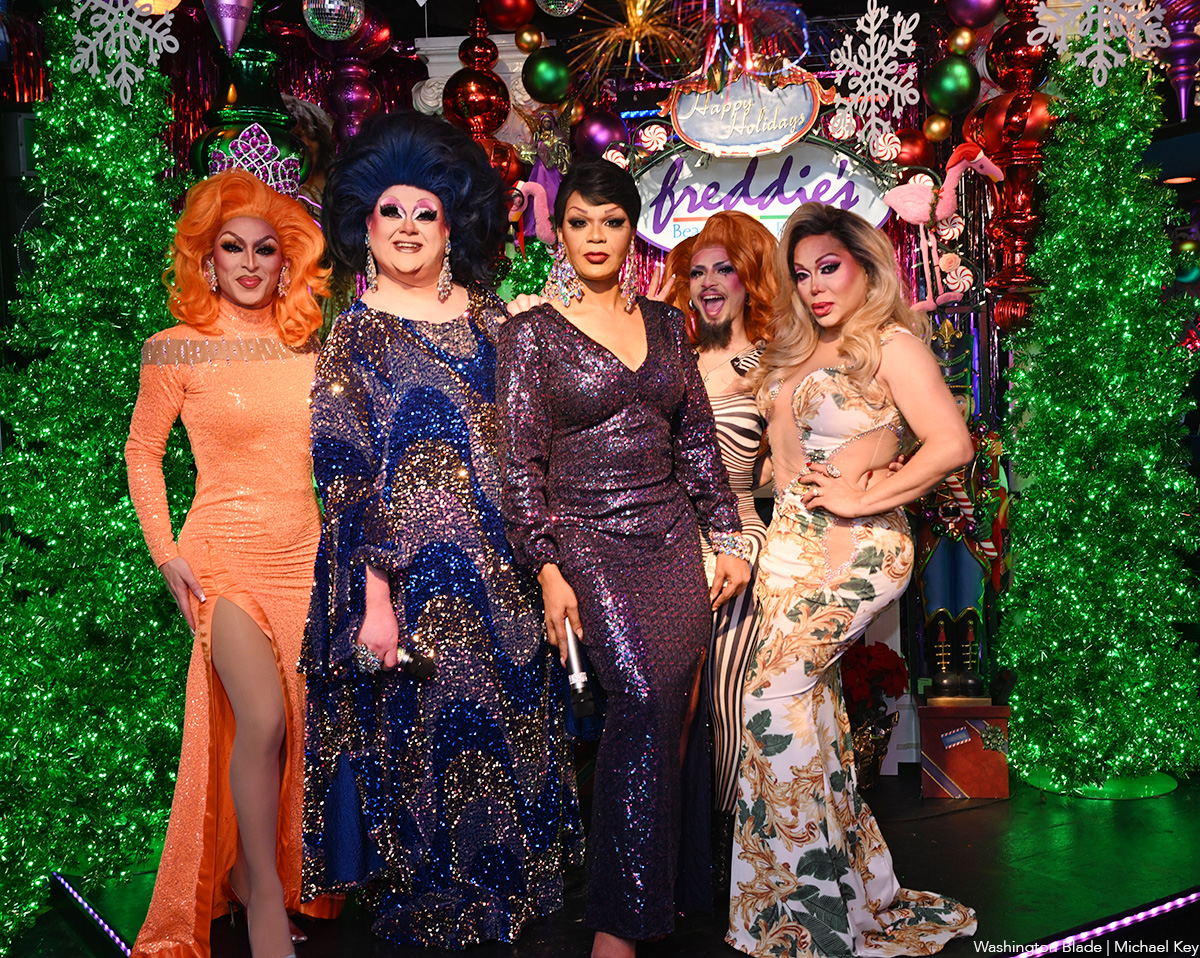
The Freddie’s Follies drag show was held at Freddie’s Beach Bar in Arlington, Va. on Saturday, Jan. 3. Performers included Monet Dupree, Michelle Livigne, Shirley Naytch, Gigi Paris Couture and Shenandoah.
(Washington Blade photos by Michael Key)

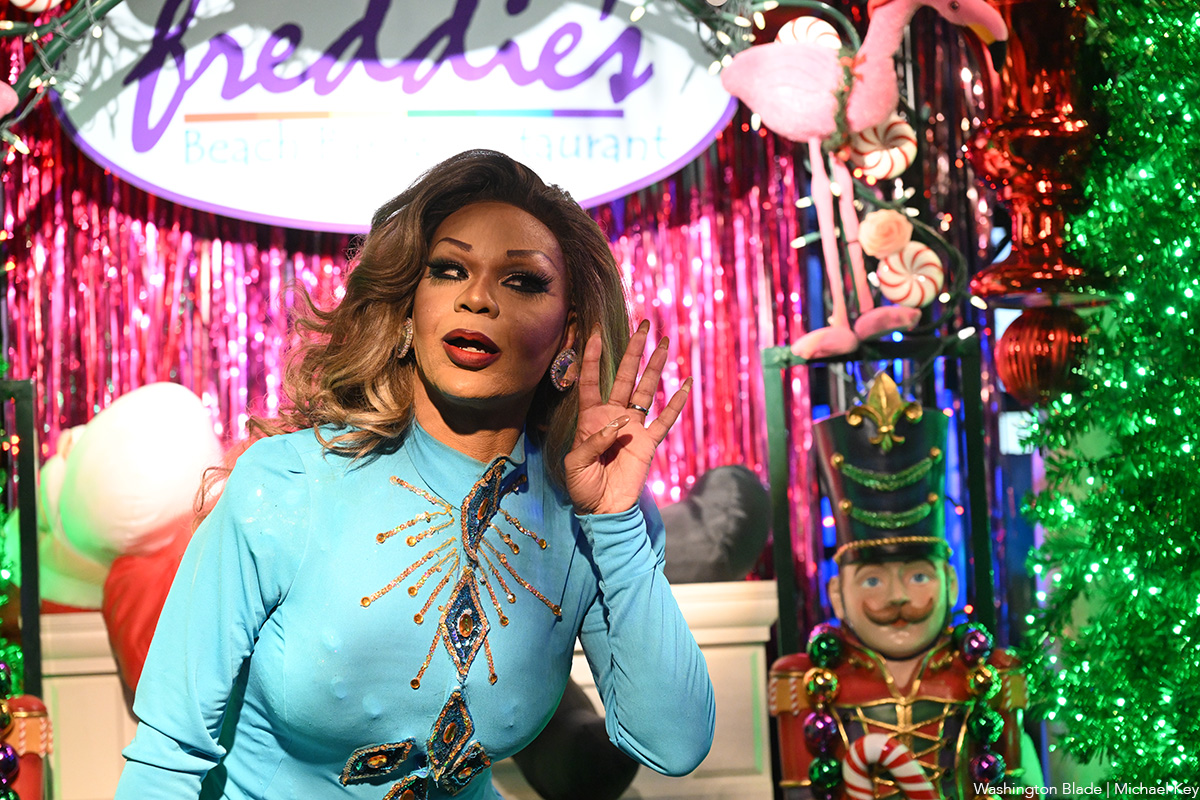





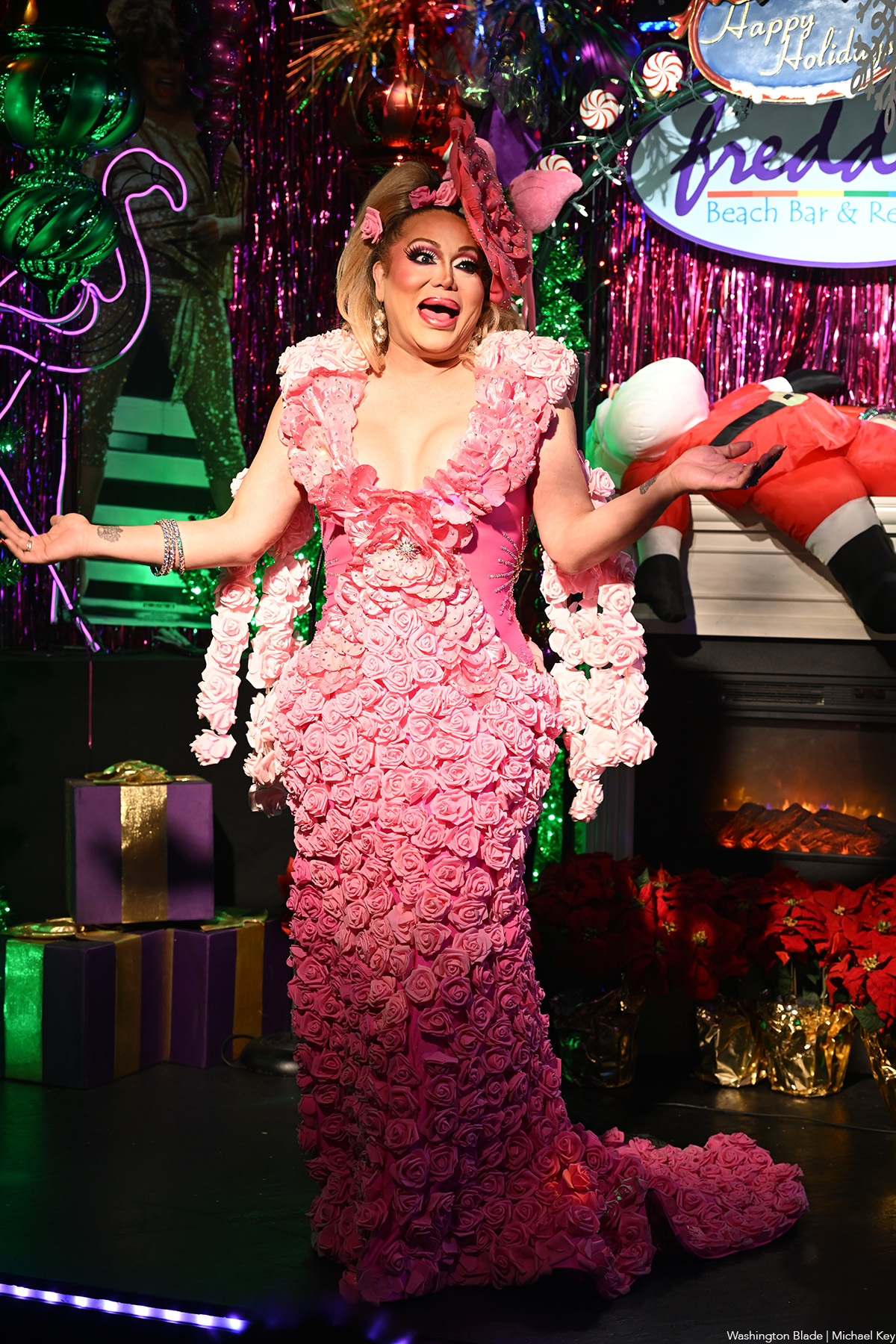
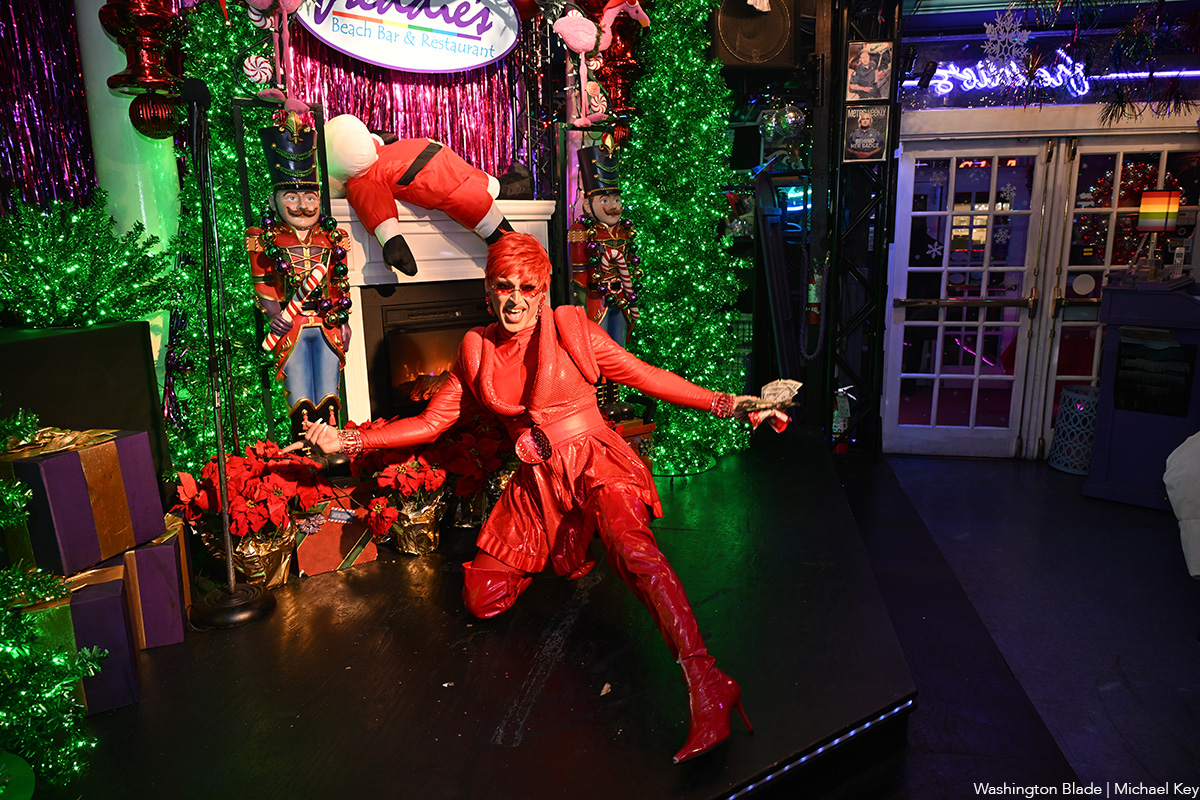
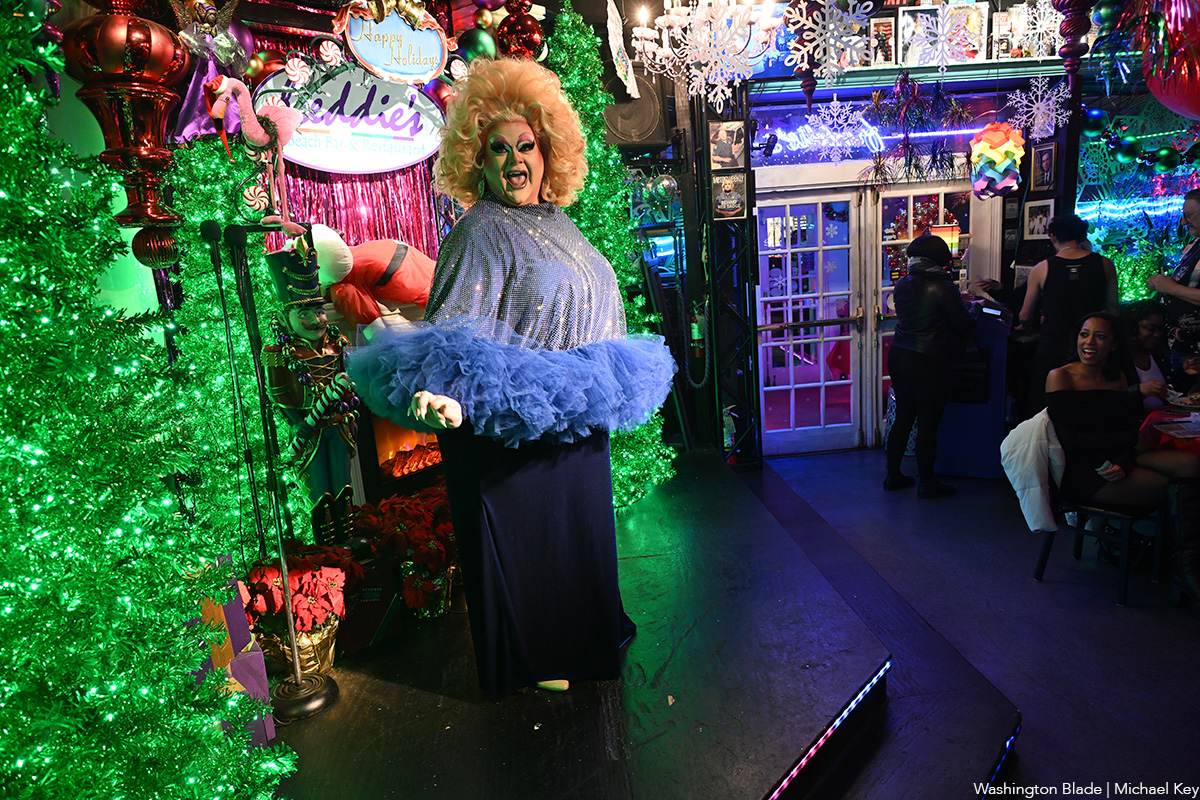
-

 Sponsored5 days ago
Sponsored5 days agoSafer Ways to Pay for Online Performances and Queer Events
-

 District of Columbia4 days ago
District of Columbia4 days agoTwo pioneering gay journalists to speak at Thursday event
-

 Colombia4 days ago
Colombia4 days agoBlade travels to Colombia after U.S. forces seize Maduro in Venezuela
-

 a&e features4 days ago
a&e features4 days agoQueer highlights of the 2026 Critics Choice Awards: Aunt Gladys, that ‘Heated Rivalry’ shoutout and more



















